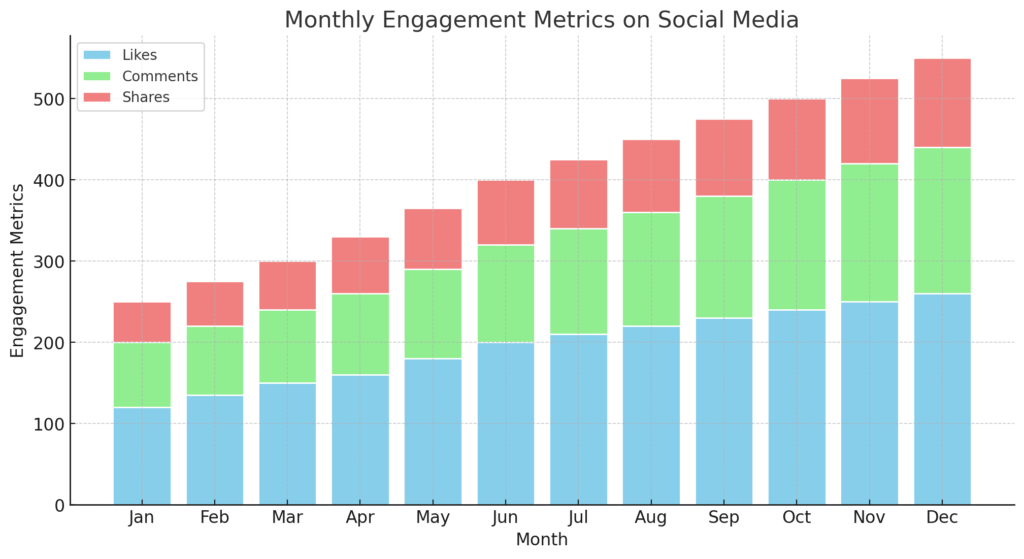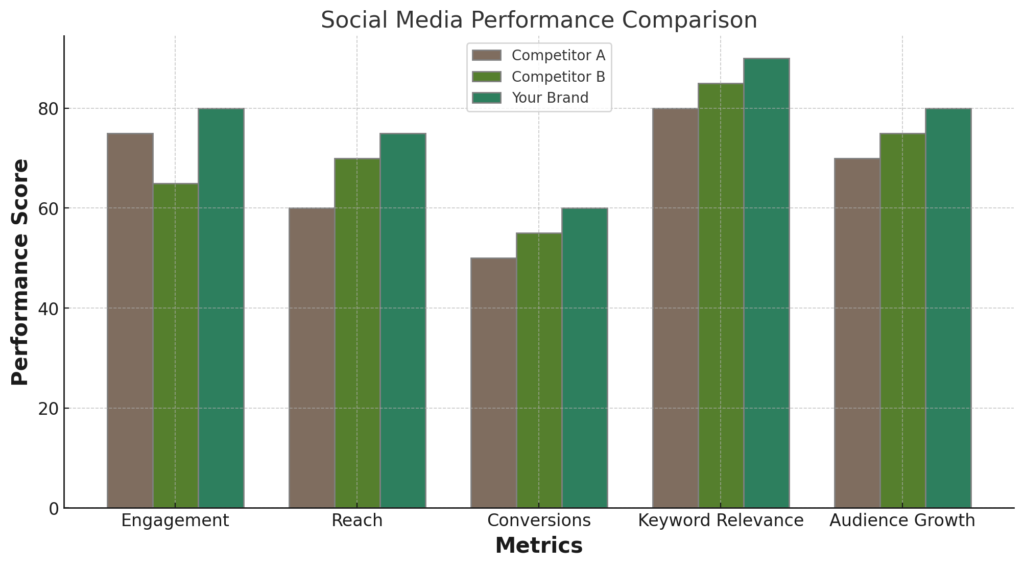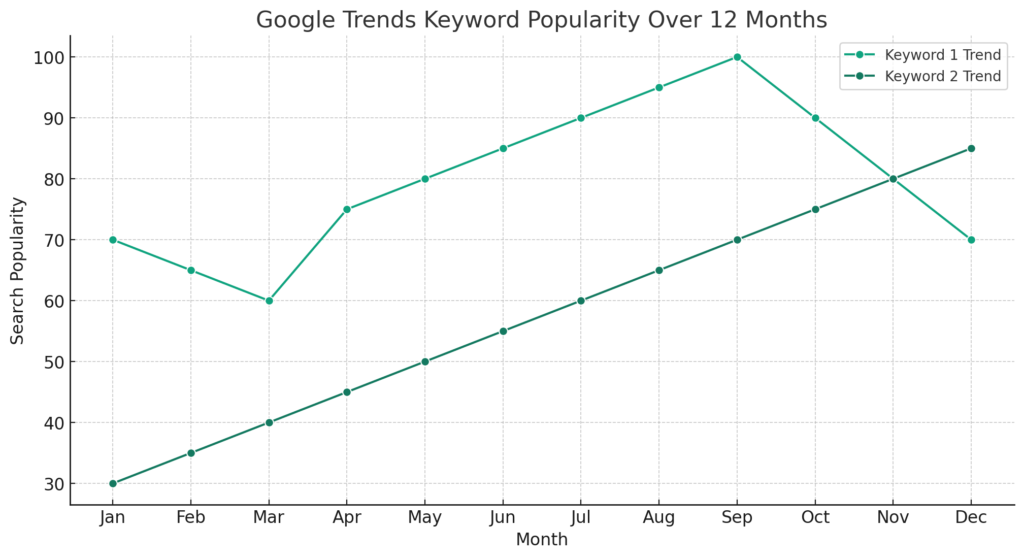In the ever-evolving digital landscape, social media platforms have become crucial battlegrounds for brand visibility and audience engagement. Understanding the foundational principles of Social Media Keyword Optimization in this context is not just beneficial; it’s a necessity for anyone looking to make a significant impact online. This comprehensive guide dives deep into the realm of keyword optimization for social media, offering valuable insights and practical tips for mastering this essential aspect of digital marketing.
Understanding Keywords in the Context of Social Media Keyword Optimization

The Role of Keywords in Social Media SEO
In the world of social media, keywords play a pivotal role, much like they do in traditional search engine optimization (SEO). However, the application is slightly different. Keywords on social media are used to categorize content, increase discoverability, and connect with the target audience. For instance, hashtags on Instagram or Twitter serve as searchable keywords that link posts to specific topics or trends.
A compelling case study in this realm is how major brands leverage Twitter during product launches. They often create unique hashtags (keywords) that are not only memorable but also resonate with their target audience. This strategy increases the visibility of their campaigns and drives engagement.
Variations of Keywords and Their Impact
The effectiveness of keyword optimization in social media lies in understanding and implementing keyword variations. A diverse range of keywords related to your core topic can enhance the reach of your content across different user segments. Here’s a table illustrating how variations of a primary keyword can impact your social media strategy:
| Primary Keyword | Variations | Potential Impact |
|---|---|---|
| Vegan Recipes | #VeganCooking, #PlantBasedMeals, #VeganLife | Attracts a broader audience interested in vegan lifestyle |
By balancing popular and niche keywords, you can cast a wider net without losing the focus of your content.
Research and Selection of Keywords

Tools and Techniques for In-Depth Keyword Research in Social Media
Effective keyword research is fundamental to crafting a successful social media strategy. It involves using a combination of tools and techniques to discover the terms and phrases your target audience uses. This process helps you understand the language and topics that resonate with your audience, enabling you to create more engaging and relevant content.
Comprehensive Guide to Keyword Research Tools
- Google Keyword Planner: A classic tool primarily for SEO, it’s also useful for social media keyword research. It provides data on search volumes and competition levels, helping you identify popular and niche keywords.
- SEMrush: This tool offers a broad analysis of keywords, including their performance across different channels and in various contexts. It’s particularly useful for finding long-tail keywords and understanding the competitive landscape.
- Ahrefs: Known for its robust backlink analysis, Ahrefs also provides valuable insights into keyword trends, search volumes, and keyword difficulty. This can be particularly useful for understanding which keywords are attainable and worth targeting.
- BuzzSumo: Excellent for content research, BuzzSumo helps identify trending topics and the most shared content for specific keywords. This can inform not only keyword selection but also content strategy.
- Social Media Analytics Tools: Platforms like Facebook Insights, Twitter Analytics, and Instagram Insights offer native analytics including data on how audiences engage with different keywords. This direct feedback is invaluable for refining your keyword strategy.
- Google Trends: This tool is essential for identifying rising and declining trends in keyword popularity over time. It can help you capitalize on emerging trends and avoid investing in declining ones.
Techniques for Effective Keyword Research
- Understand Your Audience: Start by developing a clear understanding of your target audience, including their interests, needs, and language. Use this to guide your keyword research process.
- Analyze Competitor Keywords: Look at the keywords your competitors are targeting. This can provide insights into effective strategies and potential gaps in your approach.
- Search Intent Analysis: Consider the intent behind keywords. Are users looking for information, entertainment, or a product? Tailoring your content to match search intent increases its relevance and effectiveness.
- Long-Tail Keywords: Don’t just focus on broad terms; long-tail keywords can be less competitive and more targeted, often leading to higher engagement and conversion rates.
- Use Keywords in Context: Once you’ve identified potential keywords, look at how they are used in context. This can involve reading through social media posts, forums, and blogs to see how people naturally discuss these topics.
- Regularly Update Your Keyword List: Social media trends can change rapidly. Regularly updating your keyword list ensures that your content remains relevant and engaging.
Applying Keyword Research to Social Media Strategy
With a comprehensive understanding of tools and techniques for keyword research, you can begin applying these insights to your social media strategy. For example, if you discover that “sustainable fashion” is a rising trend, you might create content around this theme, using related keywords to increase visibility and engagement among an audience interested in sustainability.
Analyzing Competitors’ Keyword Strategies in Depth

Understanding and analyzing your competitors’ keyword strategies is a critical step in refining your approach to social media marketing. This process involves a series of steps and considerations that can provide valuable insights into effective keyword usage, audience engagement tactics, and content trends within your industry.
Step-by-Step Guide to Competitor Keyword Analysis
- Identify Your Competitors: Start by identifying your direct and indirect competitors. Direct competitors offer similar products or services, while indirect competitors might target the same audience but with different offerings. Tools like SEMrush and Ahrefs can help identify these competitors based on shared keywords and market presence.
- Analyze Their Content: Once you’ve identified your competitors, analyze their content across various social media platforms. Pay attention to:
- Keyword Usage: Look for repeated phrases or hashtags in their posts, descriptions, and video content.
- Content Types: Identify which types of content (images, videos, blogs) they frequently use and how keywords are integrated.
- Engagement Levels: Note which keywords or topics are generating the most engagement in terms of likes, comments, and shares.
- Keyword Tools: Utilize keyword research tools to get a quantitative sense of their keyword strategy. Tools like BuzzSumo can show you the most shared content for a given keyword or competitor.
- Hashtag Analysis: Analyze the hashtags used by competitors, especially on platforms like Instagram and Twitter. This can reveal trends and popular topics within your industry.
- Audience Reaction: Assess how their audience reacts to certain keywords or topics. This qualitative analysis can provide insights into what your target audience values or is interested in.
- Content Calendar Analysis: Look at the timing of their posts. Is there a pattern in when they post keyword-rich content? This can provide insights into optimal posting times.
Comparative Analysis
Once you’ve gathered data, it’s time to compare their strategies with yours:
- Keyword Overlaps and Gaps: Identify any overlaps in keyword usage and areas where you might be missing out on key terms that are working well for them.
- Content Strategy Alignment: Compare how your content strategy aligns or differs from theirs. Are there content types or platforms they are using effectively that you haven’t explored?
Case Study: Competitor Keyword Strategy in Action
Imagine two competing coffee shop chains. By analyzing their social media, you notice one chain consistently uses the keyword “#EthicallySourced” in their content, which receives high engagement. The other focuses more on location-based keywords like “#BestCoffeeInBoston”. This analysis reveals different positioning: one on ethical sourcing and the other on local prominence. Applying these insights, you might decide to incorporate similar themes into your content strategy to resonate with audiences that respond positively to those specific angles.
Integrating Keywords into Social Media Content

Best Practices for Incorporating Keywords
The art of keyword integration in social media is a balance between visibility and natural engagement. Here are some best practices:
- Context is King: Always ensure that your keywords fit organically into the content. Forced or out-of-context keywords can alienate your audience.
- Hashtags and Captions: Utilize hashtags effectively on platforms like Instagram and Twitter. In captions, use keywords that flow naturally with the text.
- Visual Content: For platforms like Pinterest or Instagram, ensure your keywords appear in the image descriptions and alt text.
Keywords in Different Types of Social Media Content
Different types of social media content require varied approaches for keyword integration. Here’s a quick guide:
| Content Type | Keyword Usage |
|---|---|
| Posts | Use keywords naturally in the text and hashtags. |
| Stories | Incorporate keywords in the narrative or as hashtags. |
| Videos | Include keywords in titles, descriptions, and spoken content. |
For example, a keyword-optimized Instagram post might include the keyword naturally in the caption, complemented by a set of relevant hashtags.
Tracking and Optimizing Keyword Performance in Social Media
Effective keyword optimization in social media isn’t just about selecting and using the right keywords; it’s equally about tracking their performance and optimizing them for better results. This involves a continuous cycle of monitoring, analyzing, and adjusting your keyword strategy based on data-driven insights.
In-Depth Guide to Tracking Keyword Performance

- Utilizing Analytics Tools: Social media platforms provide native analytics tools that offer insights into how your content performs. For instance, Facebook Insights, Twitter Analytics, and Instagram Insights can show you how often your keywords are mentioned, the engagement they receive, and their reach.
- Engagement Metrics: Track how keywords impact engagement metrics like likes, comments, shares, and clicks. Higher engagement rates often indicate that your keywords are resonating with your audience.
- Reach and Impressions: Analyze how keywords affect the reach of your posts. Are certain keywords helping you to tap into new audience segments?
- Conversion Tracking: If your social media activities are aimed at driving conversions, track how different keywords contribute to your conversion goals. This could include sign-ups, downloads, or sales.
- Hashtag Performance: On platforms like Instagram and Twitter, hashtags function as keywords. Tools like Hashtagify. I can help you analyze the performance of specific hashtags.
- Sentiment Analysis: Utilize tools to gauge the sentiment around your keywords. Are they associated with positive, negative, or neutral sentiments?
Techniques for Social Media Keyword Optimization
- A/B Testing: Conduct experiments by using different keyword variations in similar posts to see which ones perform better in terms of engagement and reach.
- Seasonal Adjustments: Adjust your keywords based on seasonal trends or current events to keep your content relevant and timely.
- Competitor Benchmarking: Keep an eye on your competitors’ keyword strategy. If certain keywords work well for them, consider testing them in your content.
- Refining Keyword Selection: Based on performance data, refine your selection of keywords. Discard those that aren’t performing and replace them with more promising ones.
- Content Format Experimentation: Experiment with different content formats (like videos, images, or text posts) for your chosen keywords to see which format resonates best with your audience.
- Incorporating User Feedback: Pay attention to comments and direct feedback from your audience. They can offer direct insights into which keywords are engaging or off-putting.
Real-World Application : Social Media Keyword Optimization
Let’s consider a practical example: a fitness brand using Instagram to promote its products. After analyzing their analytics, they noticed that posts with the hashtag #HomeWorkouts have a higher engagement rate than posts with #GymLife. Based on this insight, they might decide to focus more on home workout content, adjusting their strategy to the preferences of their audience.
Measuring the Success of Your Social Media Keyword Optimization
To truly understand the impact of your keyword optimization, it’s essential to track specific metrics. Key performance indicators include engagement rate (likes, comments, shares), reach (how many people see your content), and conversion rates (how many people take the desired action after viewing your content).
Social media platforms often provide native analytics tools, and there are external tools like Hootsuite and Buffer that offer more in-depth analysis. Regular monitoring allows you to see which keywords are performing well and which aren’t.
Ongoing Optimization of Keywords
The digital landscape is always changing, and so should your keyword strategy. Here’s how you can keep your strategy fresh and effective:
- Regularly Review Performance Data: Stay on top of how your keywords are performing and adjust them based on trends and changes in engagement.
- Adapt to Seasonal Trends and Events: Align your keywords with seasonal events or trending topics to stay relevant.
A real-life example of an evolving keyword strategy is how fashion brands change their keywords with seasons, using terms like “summer collection” or “winter fashion” to stay current and attract targeted audiences.
Common Mistakes and Best Practices in Keyword Optimization
Navigating the world of keyword optimization in social media can be tricky. Awareness of common mistakes and adherence to best practices are key to ensuring your strategy’s success.
Do’s and Don’ts of Social Media Keyword Optimization
Do’s:
- Use Keywords Naturally: Ensure your keywords blend seamlessly into your content.
- Regularly Update Your Strategy: Stay agile and adapt to new trends and algorithm changes.
- Engage With Your Audience: Use keywords as a means to start conversations and engage with followers.
Don’ts:
- Avoid Overusing Keywords: This can lead to spammy content and alienate your audience.
- Don’t Ignore Analytics: Failing to monitor performance can lead to missed opportunities for optimization.
- Don’t Use Irrelevant Keywords: Stick to keywords that are relevant to your brand and content.
A quote from a social media expert encapsulates this well: “In the world of social media, authenticity, and relevance are the cornerstones of successful keyword optimization.”
Adapting to Algorithm Changes and Trends

In the fast-paced world of social media, staying ahead requires adaptability to the ever-evolving algorithms and trends. Social media platforms frequently update their algorithms, which can significantly impact how content is distributed and engaged with. Understanding and adapting to these changes is crucial for maintaining the effectiveness of your keyword strategy and overall social media presence.
Understanding Social Media Algorithms
- Algorithm Basics: Social media algorithms are complex systems that determine which content appears in each user’s feed. These algorithms consider factors like engagement, relevance, and timeliness of posts.
- Platform-Specific Algorithms: Each social media platform has its unique algorithm. For instance, Instagram might prioritize visually engaging content, while LinkedIn focuses on professional and industry-related content.
- Impact on Visibility and Engagement: Changes in algorithms can affect the visibility of your content. A new update might prioritize different types of content, user interactions, or even the frequency of posts.
Strategies for Adapting to Algorithm Changes
- Stay Informed: Follow social media news sources, blogs, and official platform announcements to stay updated on algorithm changes. Platforms like Social Media Today or HubSpot’s marketing blog are valuable resources.
- Engagement Focus: Algorithms often favor content that generates engagement. Focus on creating content that encourages likes, comments, shares, and saves.
- Content Diversity: Diversify your content types (e.g., images, videos, live streams) to see which works best under the new algorithm conditions.
- Community Building: Focus on building a community around your brand. Algorithms tend to favor content from sources that users regularly engage with.
- Analyze Data and Trends: Regularly analyze your social media data to understand how changes in algorithms affect your content’s performance.
Adapting to Social Media Trends
- Trend Monitoring: Use tools like Google Trends and BuzzSumo to stay on top of trending topics and keywords in your industry.
- Audience Preferences: Pay attention to your audience’s changing preferences. Audience feedback, comments, and engagement patterns can provide insights into shifting trends.
- Innovative Content Creation: Be open to experimenting with new content formats and styles to align with current trends.
- Influencer Collaborations: Collaborating with influencers can be an effective way to tap into current trends and reach new audiences.
Real-Life Example

Consider a fashion brand on Instagram. The brand noticed a shift in the algorithm favoring video content, such as Reels. In response, they started creating short, engaging Reels showcasing their products in everyday settings. This adaptation not only aligned with the algorithm’s preference for video content but also tapped into the growing trend of authentic, relatable marketing.
Conclusion: Social Media Keyword Optimization
Embarking on the journey of keyword optimization in social media is a continuous process of learning, adapting, and evolving. The foundational principles outlined in this guide provide a roadmap for navigating this dynamic landscape. By understanding the role of keywords, effectively researching and selecting them, integrating them into various types of content, tracking and optimizing their performance, and staying aware of common pitfalls and best practices, you can significantly enhance your social media presence.
Remember, the essence of successful keyword optimization lies in striking a balance between strategic planning and authentic engagement. It’s not just about being seen; it’s about being relevant and resonant with your audience. As you apply these principles, keep in mind that the digital world is always changing, and flexibility is key to staying ahead.
Additional Resources
For further reading and deeper understanding, consider exploring these resources:
- Moz Blog for SEO and social media trends.
- Social Media Examiner for practical tips on social media marketing.
- Books like “Social Media Marketing All-in-One For Dummies” for comprehensive learning.
FAQs on Social Media Keyword Optimization
What makes Social Media Keyword Optimization vital in social media marketing?
Keyword optimization is crucial because it aligns your content with the specific searches and interests of your target audience. This alignment increases the visibility and relevance of your posts, leading to higher engagement rates, broader reach, and improved conversion rates. Essentially, it connects your content with the right audience at the right time.
Is it effective to use the same keywords across various social media platforms?
While some keywords may be effective across multiple platforms, each social media site has its unique audience and content style. Tailoring your keywords to fit the specific context and user behavior of each platform (like using professional language on LinkedIn and more casual, trend-driven language on Instagram) can lead to better engagement and relevance.
How frequently should I update my social media keyword strategy?
Your keyword strategy should be reviewed and updated regularly, ideally every three months, or more frequently if there are significant trends or algorithm changes. Regular updates ensure that your content stays relevant and continues to resonate with your audience amidst the ever-changing social media landscape.
What are the consequences of overusing keywords in social media content?
Overusing keywords can make your content appear spammy or inauthentic, which can turn off your audience and decrease engagement. It’s important to use keywords naturally and in context, focusing on creating value for your audience rather than just optimizing for search algorithms.
How can I effectively measure the success of my keyword optimization efforts?
The success of keyword optimization can be measured through various metrics such as engagement rates (likes, comments, shares), reach (the number of people who see your content), and conversion rates (actions taken by viewers). Utilizing analytics tools provided by social media platforms, or external tools like Google Analytics, can give you insights into how well your keywords are performing and driving traffic.
What are some robust tools for conducting keyword research for social media?
Tools like Google Keyword Planner provide insights into search volumes and trends, while platforms like SEMrush offer a broader view of keyword performance across different channels. Social media-specific tools, like Instagram Insights or Twitter Analytics, can help you understand how your audience is engaging with your content and what keywords are driving that engagement.
How do keyword trends differ between platforms like Instagram and LinkedIn?
Instagram tends to favor more visual and lifestyle-oriented keywords, reflecting its highly visual nature and younger demographic. In contrast, LinkedIn keywords often focus on industry-specific terms and professional content, aligning with its role as a networking site for professionals.
Can popular hashtags be effectively used as keywords on social media?
Yes, popular hashtags can serve as effective keywords, especially on platforms like Instagram and Twitter. However, it’s crucial to ensure they are relevant to your content and audience. Using trending hashtags can increase visibility, but they should be used strategically to avoid appearing opportunistic or irrelevant.
Why is adapting to social media algorithm changes important for keyword optimization?
Social media algorithms determine how content is displayed and ranked. As these algorithms evolve, so do the factors that influence content visibility and engagement. Staying informed about and adapting to these changes ensures that your keyword strategy remains effective and your content continues to reach and resonate with your intended audience.
What is a common mistake made in social media keyword optimization?
A frequent mistake is using irrelevant or overly broad keywords, which can lead to poor targeting and reduced engagement. It’s important to choose keywords that are closely aligned with your content and audience interests. This ensures that your content is not only found but also resonates with and engages your intended audience.
Read More: Knows Kit






![Maximizing Your Social Media Impressions [2024 Complete Guide] 20 Maximizing Your Social Media Impressions [2024 Complete Guide]](https://www.knowskit.com/wp-content/uploads/2024/01/brainstorming-for-social-media-ideas-768x439.png)
